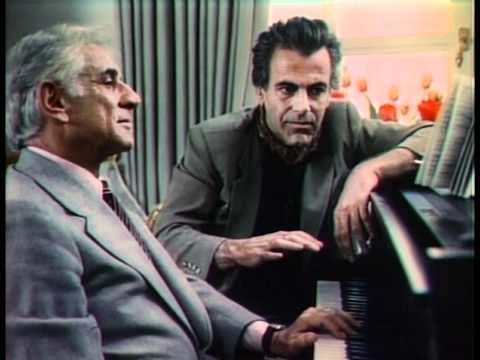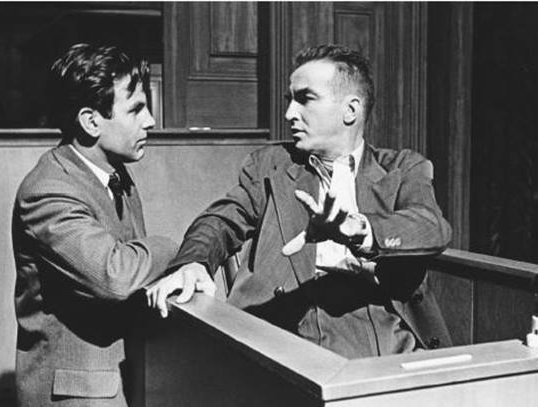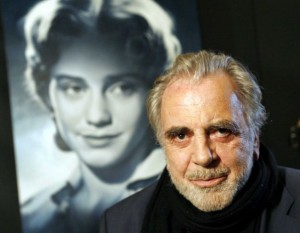R.I.P Maximillian Schell – Actor, Director, Lover of Music & Art
<> <> 
Schell listening to Bernstein on Beethovan – (youtube treasure a must see repost)
I don’t actually have a profession. I wander through life and through all areas of art,” Schell once said.
Max played piano.
R.I.P Maximillian Schell Oscar-winning actor,dies aged 83.
Mr. Schell sometimes performed as a concert pianist and conductor and appeared with such classical music luminaries as Claudio Abbado and Leonard Bernstein. In the early 1980s, he and Bernstein were co-hosts of a PBS television series in which they discussed the music of Beethoven.
(His wiki here )
His film on Marlene was great. See the trailer here (Max shared a birthday with Delmore.)
How it all started.. his film on Marlene..(Max on youtube)
Schell worked with Vanessa Redgrave in many films.. among them Little Odessa directed by John Gray.

Max & Monty both were brilliant.
Full film Judgement at Nuremberg
Click to see large 
Photo via
May Sister Maria
Maria Schell’s life was filled with romances, loneliness, unrequited love, disappointments, debt, depression, suicide attempts, and an unwillingness to grow old gracefully. Her brother and confidant, actor/director/cowriter Maximilian Schell, blends interviews with staged scenes in this examination of their personal relationship, expressing his great respect for her lifework and the regret he felt at her later failures.
Schell made his Hollywood debut in 1958 in the World War II film The Young Lions (1958) quite by accident, as the producers had wanted to hire his sister Maria Schell, but lines of communication got crossed, and he was the one hired.
Schell ultimately won two more Oscar nominations for acting, in 1976 for Best Actor for The Man in the Glass Booth (1975) and in 1978 as Best Supporting Actor for Julia (1977) (via IMDB)
Schell as Hamlet 
Flick philosopher
(Saw his Hamlet with Japanese subtitles.. dialogue in German.)
Schell collects Josef Albers.
Maximilian Schell discovered Josef Albers’s Homages to the Square at the Sidney Janis Gallery in the early 1970s, where, every two years, Albers, by then an octogenarian, would present his latest “platters to serve color”. This was the deliberately unpretentious term the artist applied to his unique forays in color presentation that evoked the mysterious interaction of one hue beyond its boundary and into its neighbor’s territory, and that held the film and theater man captive to the poetic possibilities of pure paint applied with technical virtuosity to the panel.
Schell instantly realized that he had found a level of mastery and subtlety and nuance akin to his own ideals as a director and actor, even in his lesser-known territories of interest as a pianist and an athlete. Schell would point out to people that the difference of less than a split second could distinguish a gold medal winner from one who took a bronze medal in the Olympics, and that an equally minuscule unit of time was the decisive factor in Pollini’s or Abato’s playing of a Mozart piano sonata as opposed to that of a hack. That attention to a mere particle of a second of time represented the level of perfection that Schell sought in every arena of his own life, and he recognized that Josef Albers achieved it, to a tee, in the realm of color.(via)